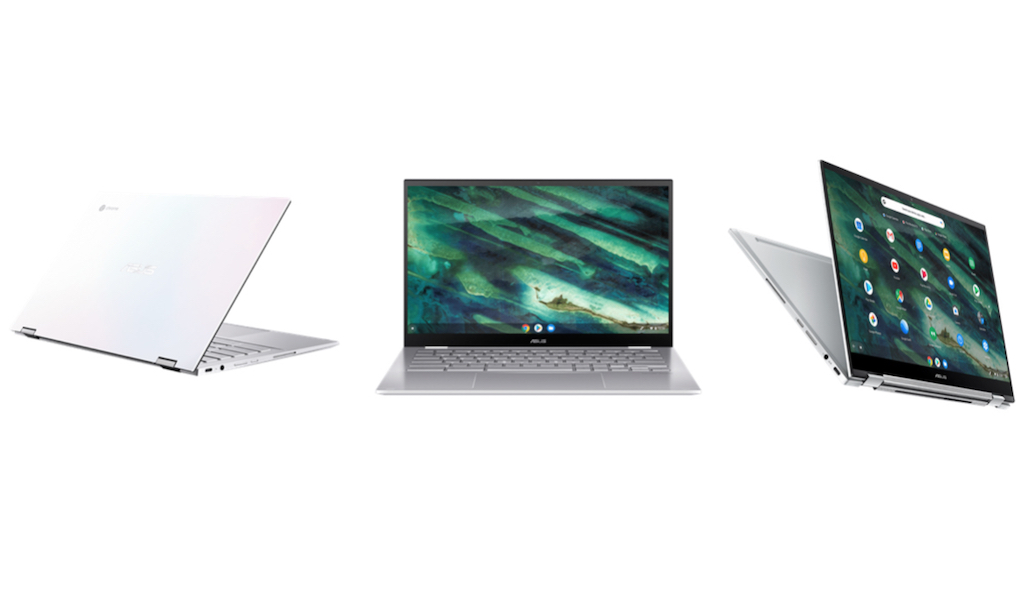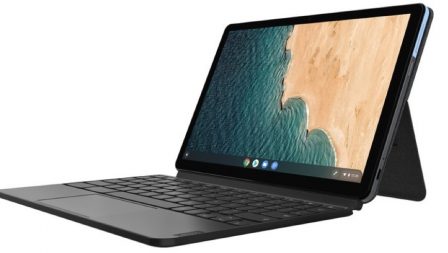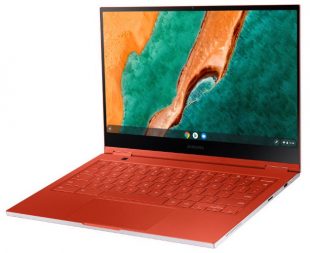
Chromebooks are a timely subject for me. I just finished spending a few weeks with the incredible Google Pixelbook, evaluating the merits of using a Chromebook as a family computer. No sooner had I (very reluctantly) returned that review unit, than a crop of new Chromebooks made an appearance at CES 2020. Based on what’s being shown off, the case for adopting a Chromebook over a traditional laptop just got even stronger.
 Lenovo IdeaPad Duet Chromebook
Lenovo IdeaPad Duet Chromebook
Lenovo has a reputation for making nice laptops (especially the keyboards), and the company also offers Chromebooks. The new IdeaPad Duet Chromebook introduced at CES looks like a great entry in the budget Chromebook market. It’s a 2-in-1 with a 10.1-inch display/tablet paired with a detachable, magnetic “laptop grade” keyboard.
 ASUS Chromebook Flip 436
ASUS Chromebook Flip 436
Last October, I reviewed the ASUS Chromebook Flip C434. This was a really nice laptop, with plenty of premium touches including all-metal construction, minimal bezels and a beautiful display. It really made a case for how far Chromebooks have come, especially given its affordable price.
The ASUS 436 was just announced at CES and it looks like another winner. The form factor looks very familiar, but this time it’s equipped with a 10th generation Intel Core processor with Wi-Fi 6 support, an integrated fingerprint sensor, quad Harman Kardon speakers and all-day battery life. The magnesium alloy frame keeps thickness to 13.7 mm and weight to just 1.09 kg, despite the 14-inch Full HD display. I can’t wait to get my hands on this one …
 Samsung Galaxy Chromebook
Samsung Galaxy Chromebook
I had to put this Chromebook in here, even though it seems unlikely we’ll see it any time soon in Canada. I mean just look at that Fiesta Red case. That’s stunning. And the 4K display is AMOLED. The Samsung Galaxy Chromebook is just the latest example of the point I made in my post about Chromebooks as a family computer: these devices are no longer made as cheaply as possible, they’ve come into their own in terms of premium quality design.
Project Athena
Intel is also involved in Chromebooks with many models opting to use Intel processors. At CES 2020, the company was playing up Project Athena. This is a new hardware standard designed to make for high performance Chromebooks. Here’s how Intel describes Project Athena certified Chromebooks:
“These innovative laptops will be designed to light up immediately with instant resume, and deliver blazing fast connectivity, virtually all-day battery life, and, when it is needed, a four-hour battery charge in 30 minutes. Redesigned from the ground up to offer the highest performance in always-changing circumstances — including pen, voice, and touch interaction modes, built-in AI to help you get things done, and 2-in-1 form factors. These are designed to be the thinnest, lightest, and most powerful Intel-based laptops for fast-paced lives.”
A lot to absorb there, but you get the picture. Chromebooks are truly evolving from make-do devices to no-compromise, high-performance laptops. And the new ASUS Chromebook Flip 436 and Samsung Galaxy Chromebook announced at CES 2020 are Project Athena-certified.
Availability
Sadly, I have my doubts we’ll see that Samsung Galaxy Chromebook in Canada (if that changes, you’ll hear it here). Keep an eye on the Best Buy blog for any news about the Lenovo IdeaPad Duet Chromebook and ASUS Chromebook Flip 436 availability. Speaking of the Best Buy blog, don’t miss out on any of our ongoing CES 2020 coverage.


